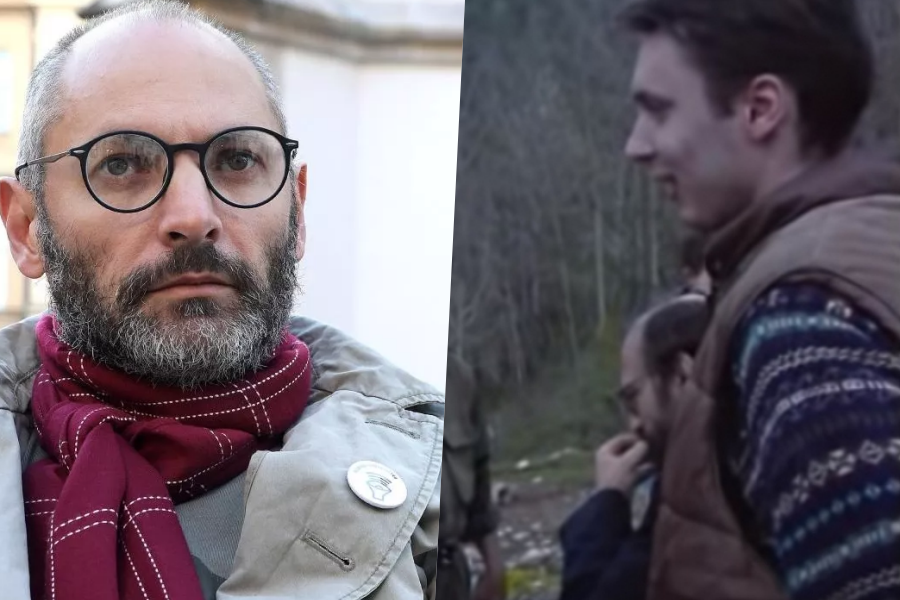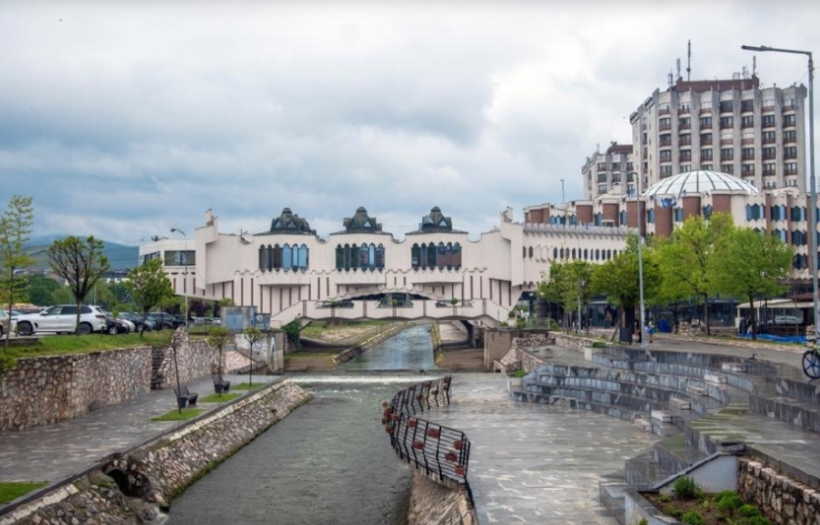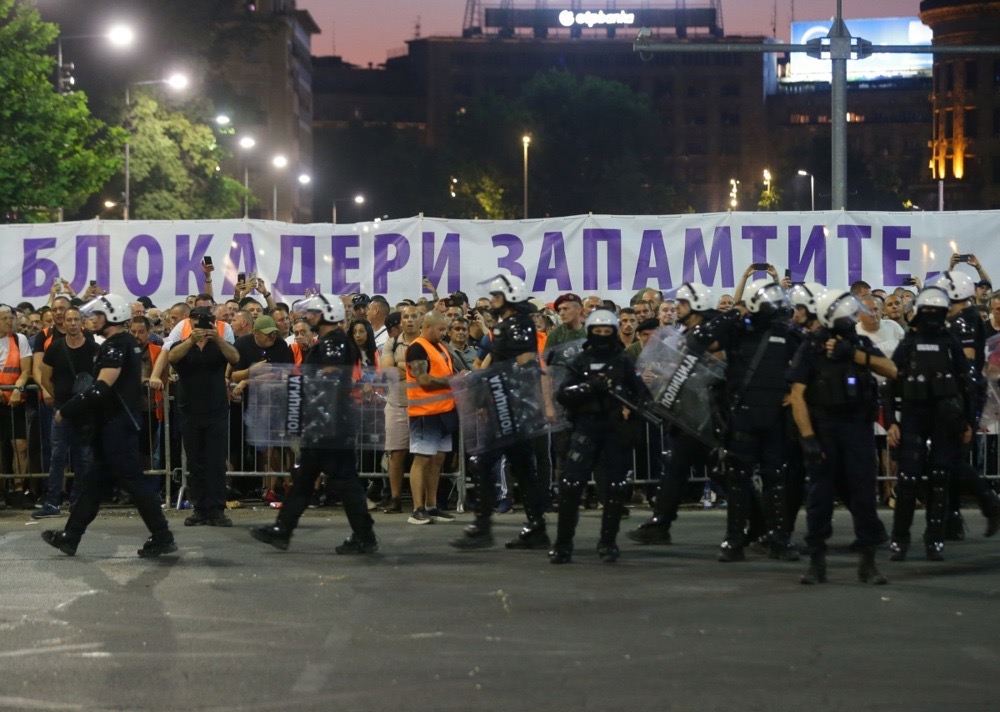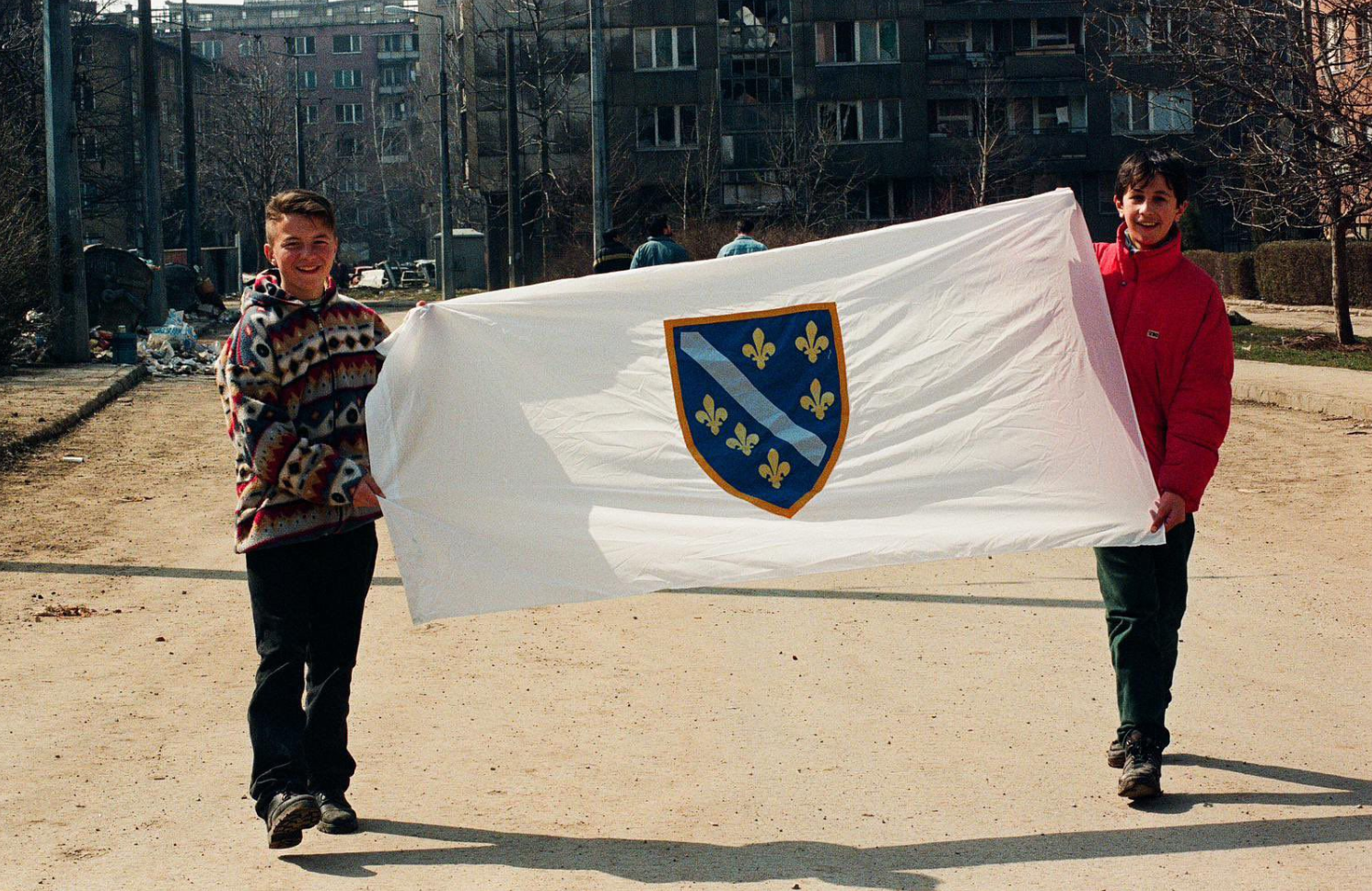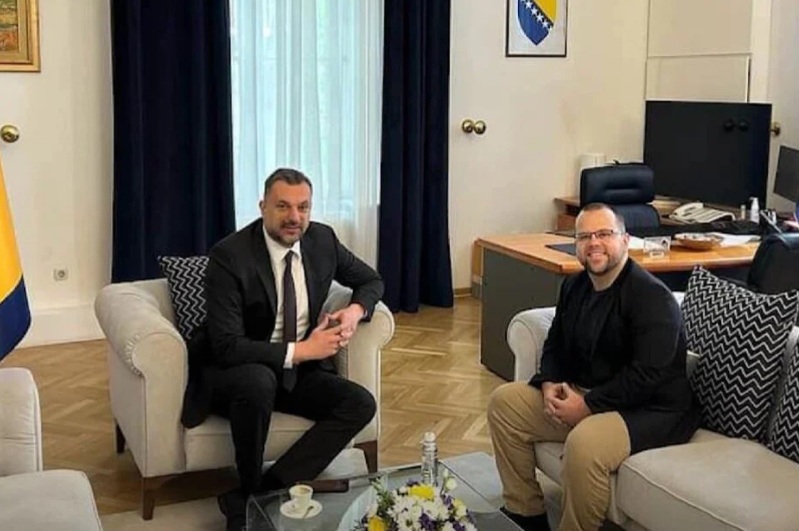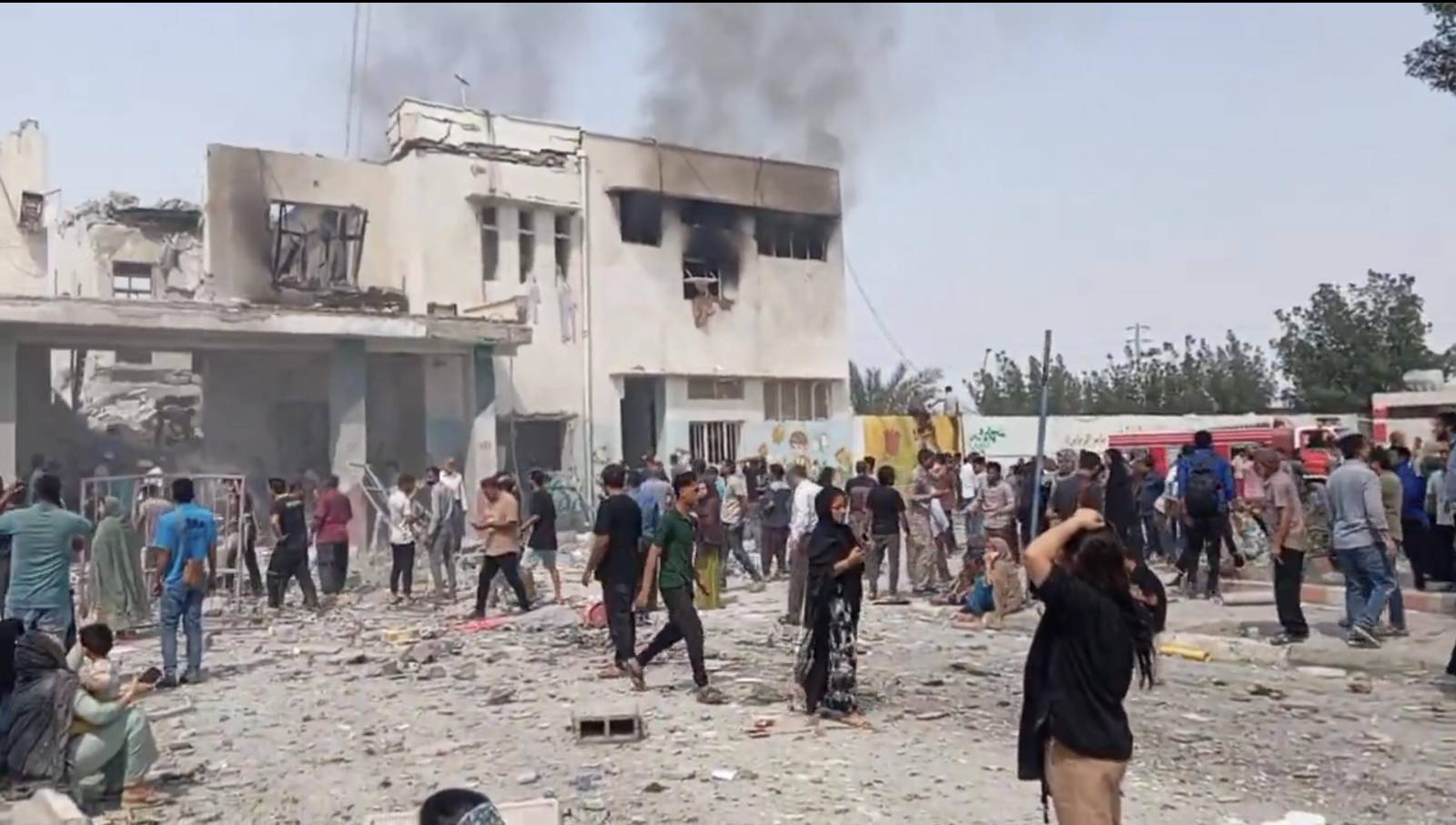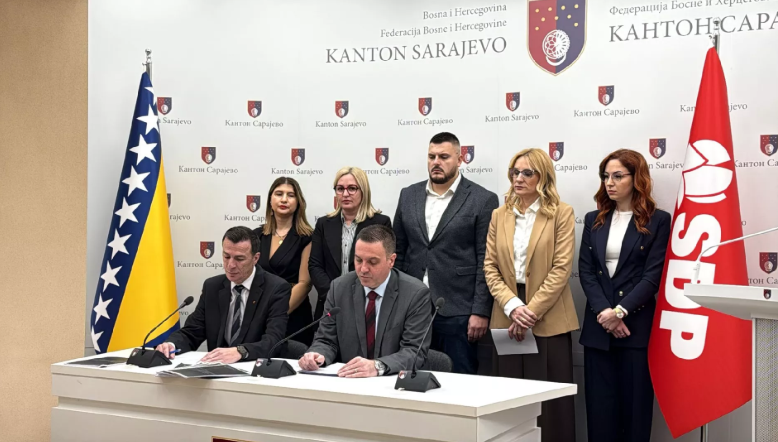The mass demonstrations in Belgrade and the fearful reactions of the Vučić government indicate that Serbia may be on the verge of a political revolution. After years of tightening regime controls, massive official corruption, and constant media hate speech, the Serbian public is finally awakening from its stupor. Nonetheless, the results of the peaceful public revolt remain uncertain and could precipitate violence both in Serbia and the wider region.
Non-democratic regimes are inherently unstable. Quasi-authoritarian regimes have proved to be the most brittle, as we are beginning to witness in Serbia. Genuinely pluralist democracies can rotate parties and leaders, while fully authoritarian or totalitarian systems can crush all dissent, at least for a prolonged period of time, as we see in Russia and Belarus. But semi-authoritarian system that still allow for rival parties and civil society to function are more vulnerable to uprisings as we saw in Ukraine before the democratic reformation in 2014.
The mass protests in Serbia against the Vučić regime reveal a deep current of opposition to state policy that is blocking the country’s progress. But instead of addressing the core problems, the government is manufacturing outside scapegoats for the current unrest. Serbia’s citizens have a historic opportunity to stage a democratic revolution by holding elections, but the balloting has to be fully free and fair, with equal access for all parties to the media and extensive international monitoring. Moreover, the rallies need to develop from simply voicing anti-government grievances into a concrete political program under a coherent national leadership. They must also avoid being hijacked by ultra-nationalists.
The current scenario could either remain peaceful or turn violent, depending on whether Vučić is willing to sacrifice people for power. In a peaceful democratic revolution the public momentum for the resignation of the regime intensifies, the number of supporters grows around the country, the security forces are unwilling to attack unarmed civilians, and the government steps aside and calls for elections. Such transformations have been called “color revolutions” because of the colorful symbols used by protestors. More accurately, they should be portrayed as democratic revolutions against intensifying authoritarianism and electoral manipulation. They invariably start spontaneously while civic groups and political movements play a growing role in channeling public grievances against a discredited regime.
The ultimate outcome of such revolutions may be corroded or even reversed over time but they provide hope that broader sectors of society can have a voice in the political process. Serbia experienced one such popular uprising during the “bulldozer revolution” that replaced Milošević in October 2000. The results fizzled out over the next decade much like Ukraine’s Orange revolution in 2004. However, Ukraine’s Majdan uprising in early 2014 ousted an increasingly corrupt and abusive government and ushered in fair presidential and parliamentary elections. It delivered on ensuring the rule of law, institutional checks and balances, and other components of a democratic system. Serbia now faces a similar opportunity.
The government may try to exhaust and dissipate the protests, but if they expand with concrete political demands, a violent scenario is also possible. This becomes more likely if the regime refuses to prepare for competitive elections and retains the backing of the security and police apparatus. Ukraine’s initially peaceful revolt in February 2014 confronted state violence and over a hundred protestors were murdered by the security forces. Vučić is now desperately trying to prove that he is still popular by staging his own mass rallies in a replica of communist times when workers had no choice but to participate. He is also stirring animosities and trying to discredit the democratic opposition by alleging that “foreign intelligence services” are behind the protests.
Vučić’s rallies may become similar to those of Milošević in the early 1990s where angry speeches spurred ethnic divisions that contributed to the violent collapse of Yugoslavia and the mass murders of civilians. In the current regional constellation, Vučić possesses several tools to provoke conflicts inside Kosova, Montenegro, and Bosnia-Herzegovina and to mobilize the public against alleged foreign enemies. The recent violence by organized gangs against Kosova’s police and NATO troops in northern Kosova could be a harbinger for a broader conflict engineered by Belgrade if Vučić receives a weak response from Washington.
Moscow would also play a role in the unfolding crisis. For Russian officials popular revolutions are negative phenomenon imposed by American special services. And if the results threaten to culminate in democratic reforms and Western integration then the peaceful uprising must be extinguished so that the Kremlin does not lose another ally. Any government that is friendly to Russia but is challenged by widespread public opposition is automatically depicted as the victim of the “collective West” and must be assisted to cling to power.
Unlike Ukraine, Serbia does not face a potential Russian military intervention to crush democratization and European integration. Nonetheless, Russian services and their local proxies including various radical nationalist groups could stage provocations to destabilize the country. Internal chaos in Serbia and armed conflicts in Kosova, Bosnia, and Montenegro would be the second-best solution for the Kremlin if a friendly regime in Belgrade is in danger of being replaced. It would also help dispel attention from the failing war in Ukraine and escalating internal turmoil in Russia itself.
To prevent a spiral of regional violence, a clear message must be sent by Washington that it supports the aspirations of the Serbian people and will fully defend the integrity of Serbia’s neighbors. Firm international backing for fair elections in Serbia can help ensure a pro-Western government that cuts Belgrade’s corrupt ties with Moscow and revokes any expansionist regional ambitions. Without a successful democratic revolution in Serbia, the Balkans will face the prospect of escalation that can no longer be de-escalated.
(Janusz Bugajski is a Senior Fellow at the Jamestown Foundation in DC. His recent book is Failed State: A Guide to Russia’s Rupture, and his next book is Pivotal Poland: Europe’s Rising Strategic Player. He has just toured Ukraine with the Ukrainian translation of his Russia Rupture book)



